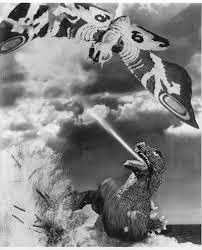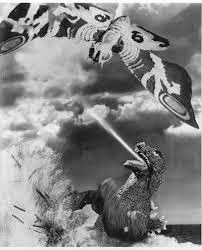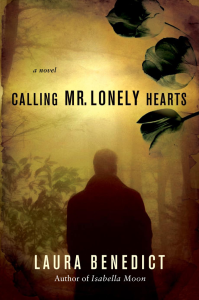Last week, I hit the zone. It’s that wonderful stretch in the writing road when the asphalt is smooth and straight and the tires are humming and you know, you just know, you’re on the right track. This is what writers live for, I think, this special moment when all the cylinders are firing, the top is down and the wind is in your hair, and the music is blaring out of the radio.
I see a little silhouetto of a man,
Scaramouche, Scaramouche, will you do the Fandango?
Thunderbolt and lightning,
Very, very frightening me.
(Galileo) Galileo!
Galileo Figaro
Magnifico…
When I write, I hear music in my head. Sure, I see the movies, see the scenes playing out. But the music? That’s something special. I know I’m not alone in this. I suspect many of you “hear” your books as well as “see” them in your heads. But let’s make one big important distinction here.
I’m not talking about the music you might chose to listen to WHILE you write. I’m one of those folks who can’t listen to music when I am pounding the Acer keyboard. It’s like the voices of singers drown out the voices of my characters. And I need to listen to those characters very very carefully.
What I am talking about are the soundtracks that play softly in the background of your brain as your book comes to life. All my books seem to have soundtracks that help me define my themes and motifs and maybe more importantly, capture the right tone. Think of all the great movies you have seen in your life. Most had great soundtracks that even when not actively playing on the screen murmured in your mind.
Take that mournful lone trumpet that opens The Godfather. The song’s title is “The Immigrant,” though it’s sometimes called “The Godfather Waltz.” (Did you even realize it’s in three-quarter time?) It’s the first thing we hear when the movie opens, a slow foreboding melody that lasts for only seconds. But it identifies two big themes — the use of power and fear — and it sets film’s chiaroscuro mood.
Or consider the score of Lawrence of Arabia. Sweeping, magestic, yes. The moment you hear it you are there in the vast scorched beauty of the desert. But the theme song is also elegaic, so we somehow know what we are seeing and hearing is all grand metaphor for our tragic hero’s torment and self-delusion.
But we’re supposed to be talking about books, right? How can we apply this magic to the static page? Well, eBooks have given writers to ability to embed sound and images in their novels. A couple years ago, Stephen Smoke, author of 19 novels and a film director, published Cathedral of the Senses, which is supposedly the first novel with its own embedded soundtrack.
Maybe I’m a Luddite, but I’m not too keen on this idea because I’m thinking that it’s the writer’s job to create a world so vivid in the reader’s imagination that the reader himself can make up his own movies and soundtracks. That’s what reading is all about, no?
But I do think we writers have an obligation to plant the seeds in the reader’s head that enhance the imaginary experience. Our powers of description must be acute so the reader can see, smell, taste and hear things. But we also need to pay very close attention to what the reader is feeling. And this is where the music comes in.
I’ve written here before about how important tone is to a book’s success. (Click here) Like that moviegoer watching The Godfather for the first time, your reader should be able to know immediately what kind of world they are entering. But if you don’t know the tone of your book — what its soundtrack is — your reader can’t either. Your reader might enjoy the plot, like the characters, have a chuckle or scare or two. But they won’t truly invest themselves emotionally in your story.
Thinking about your book as having a soundtrack can help you identify themes and motifs. A theme is what you are trying to say behind the mechanics of plot; it’s an underground railroad propelling your story and people forward. Likewise, a motif is an element in your story that, through repetition, enhances mood and theme. Think of the green light on Daisy’s deck in The Great Gatsby or the washing of hands in Macbeth. Or that trumpet solo in The Godfather.
Sometimes, music can inspire the story itself. Years ago, Kelly and I were stuck trying to come up with a plot for our next Louis Kincaid thriller. Then one day I was listening to my favorite J. Geils song Monkey Island.
It starts out as this funky jazz instrumental but then it slows into this really creepy song:
No one could explain it
What went on that night
How every living thing
Just dropped out of sight
We watched them take the bodies
And row them back to shore
Nothing like that ever
Happened here before.
There ain’t no life on Monkey Island
No one cares and no one knows
The moon hangs out on Monkey Island
The night has dealt the final blow.
We asked ourselves what the hell had happened out there on Monkey Island? Eight months later, we had our sixth Louis Kincaid book finished, Island of Bones.
The same thing happened with our standalone thriller The Killing Song. My husband Daniel and I were sitting in a cafe in Paris drinking kir royales and I was bemoaning the fact I couldn’t think of a plot set in Paris. Daniel, a big Rolling Stones fan and a cheap drunk, began to sing the Rolling Stones song, Too Much Blood:
A friend of mine…had a girlfriend in Paris.
You know he took her to his apartment, cut off her head.
Put the rest of her body in the refrigerator, ate her piece by piece.
Put her in the refrigerator, put her in the freezer.
And when he ate her and took her bones to the Bois de Boulogne….
We didn’t end up writing that book for more three more years and it had nothing to do with those actual lyrics. But that song, with its darkness and dread, was always there in my head, percolating a plot and pushing me along.
Oddly enough, I haven’t been hearing much music of late when I write. Maybe that’s why I’ve been in a bit of a slump. We’re working on two new books right now and both have been going more slowly than normal. One of them is a stand alone that, as I have mentioned here before, is a departure for me. So I am struggling. I was trying to hear music but it was like I was thirteen again, laying in bed with my transitor radio, trying to pick up the fading in-and-out signal from Cousin Brucie in New York. Only one song was coming through to me: Lucky Man by Emerson Lake and Palmer. I realized it was the theme song for my protagonist’s husband, Alex, who does indeed, have white horses and ladies by the score.
But my heroine Amelia? I wasn’t hearing her at all.
Then, about four weeks ago, I was running with the old iPod and Ruby Tuesday came on. But it wasn’t the Stones version. It was Marianne Faithfull’s rendition. I had heard the Stones song a million times and didn’t particularly like it because it struck me as one of their mildly misogynistic odes to loose women (in this case, it is said, a Keith groupie.) But the song is utterly transformed by Faithfull’s ravaged weary voice:
“There’s no time to lose”, I heard her say
Catch your dreams before they slip away
Dying all the time
Lose your dreams and you will lose your mind
Ain’t life unkind?
Suddenly, I knew who my protagonist was, what she had lost, and what she had to do about it. The theme of my story came into sharp focus. And the motifs, which were there in my pages but not fully exploited, started to glow like neon. Last week, I went back and started over on the book. I have written four chapters in four days. Where once I dreaded opening the file, now I look forward to it. And I am sure it is because I found the soundtrack.
Listen to your book’s music. You have to hear it or your reader never will.





